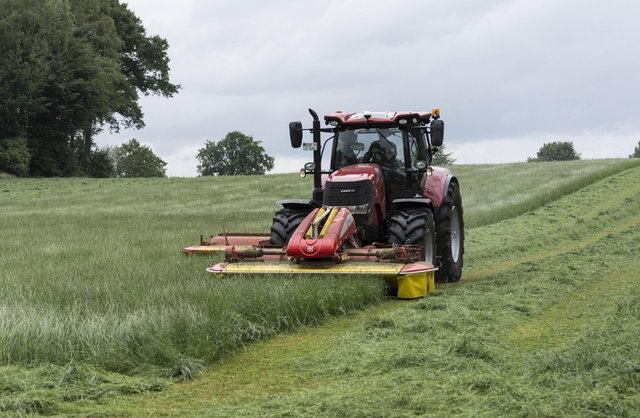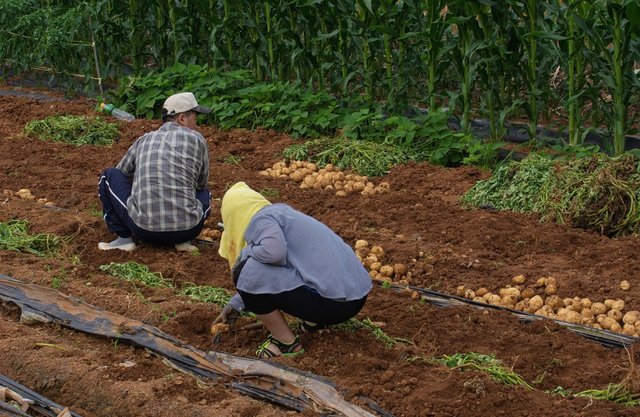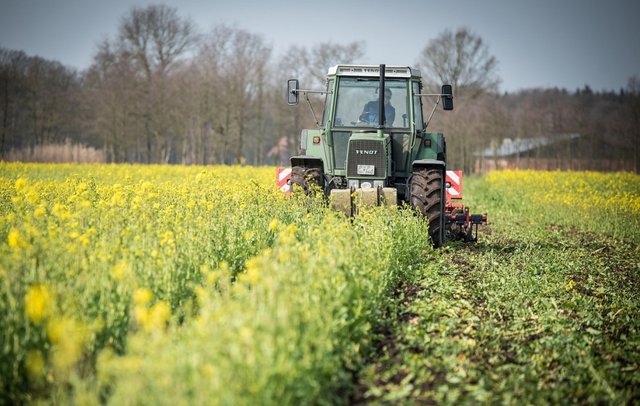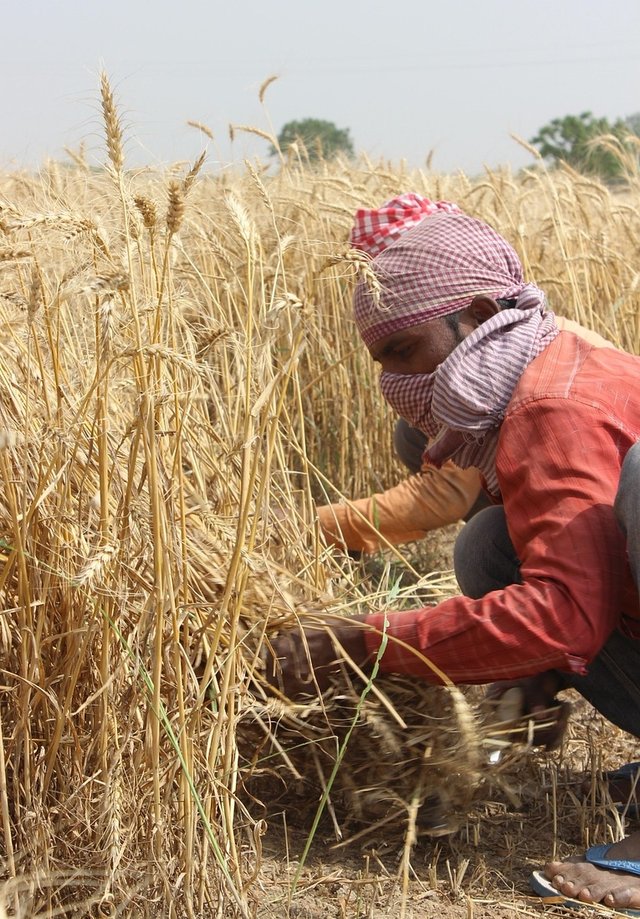Basic Knowledge in Agriculture #46

pixabay
Farming, compared to many industries, play a crucial role in catalyzing the economic advancement of many nations globally. Many developed countries today, rely on agriculture as a major source of income as it is not only a means of food sustainability, but provides avenues for international collaborations and investments.
I reside in a society where farming is a regular practice, in fact, we visit our farms habitually.

To Some, it is inconveniencing because of the manual methods farmers engage. However, with advancement in technology today, farming processes have been optimized by mechanization - mechanized farming.
Mechanized farming, by my understanding, is the involvement of agricultural machineries and advanced technology, to facilitate the farming process - improving productivity, efficiency, sustainability, and reduced labour - there by, yielding more results. Thanks to technology, With mechanized farming, farmers are relieved the stress of manual tillage, irrigation, planting (grains, cereals, legumes, etc.) fertilization, and other labour intensive processes.

This farming method can be adapted to various crops and farming systems, depending on the specific needs and requirements of the crop.
Importance of Mechanized Farming
Mechanized farming is important in several ways, such as increased Efficiency, improved productivity, time saving, and reduced labour. Each of these, contributing to the sustainability and profitability of agricultural operations.
Increased Efficiency
Mechanization reduces manual labour. This allows farmers to manage larger areas and produce more crops. Machines like tractors, plows, etc. can automate certain farming processes such as planting, harvesting, and tilling, thus, increasing productivity. This method of Farming allows farmers to allocate resources effectively, improving overall efficiency and reducing waste. The use of advanced technology in farming, like precision farming technologies - use of GPS-guided equipments and drones - enable farmers to reduce waste and optimize crop yield.Improved Productivity
Mechanized farming enhances and contributes to improved productivity in diverse ways - from increased production, to reduced crop losses, reducing waste and improving quality. Mechanized farming via precision farming technologies enable farmers to monitor and control certain factors that could affect crop quality, resulting in higher quality produce. Mechanized farming also optimizes crop yields and reduces losses, contributing to increased food production. Through mechanized farming, the demands of a growing global population could be met.Time saving
Mechanized farming enables farmers to respond more quickly to certain situations that could be less attended to, like changing weather conditions, and reduces the risk of crop damage and losses. By also automating tasks like irrigation, fertilization, and pest control, time and labour could be saved, enabling farmers to focus on other critical tasks.
Mechanized farming reduces the need for manual labour and frees up time for farmers to focus on farm management and strategic decision making.Reduced Labour Costs
My automating tasks, mechanized farming reduces the number of workers required for farming operations, reducing labour cost as a result. By reducing the need for manual labour, farmers and workers are relieved of physical strain, improving their quality of life and well-being.
ADVANTAGES OF MECHANIZED FARMING
Mechanized farming has numerous advantages, making it a valuable pillar in modern farming, these include:
Improved quality of life for farmers
By Mechanized farming, farmers are provided with reduced physical and strenuous tasks, less fatigue, and farmers have valuable time allowance to attend to other pressing issues, or even diversify to different streams for more income.Consistency and precision
Unlike man and manual operations, machines can render consistency and precision in farming operations like tilling, irrigation, planting, and harvest, reducing errors, this, resulting in consistency in high quality produce.Food security
With machines that can cover large fields in less time, crop production is boosted, producing enough and sustainable crops and ensuring food security for growing population.Enhanced sustainability
In mechanized farming, the wastage of valuable resources like water and fertilizer, could be minimized with technologies such as GPS-guided tractors, automated soil testing, and drip irrigation, leading to a more sustainable farming practice.
DISADVANTAGES OF MECHANIZED FARMING
Mechanized farming, despite its importance, has its limitations, setbacks, and challenges that must be acknowledged. Some of these include:
High initial cost
The purchase of essential machines like tractors, harvesters and tractors require substantial amounts which could be very challenging for small scale farmers if they're not supported by government, or have credit sources.Dependence on machinery
Farmers could become dependent on machinery, which could be a setback at critical farming situations, especially in machine unavailability or breakdown. Maintenance also requires good expertise and extra cost.Job displacement
Mechanized farming can lead to increased unemployment since it reduces manual labour, especially in rural areas where farming is the major source of livelihood.Environmental impact
The use of heavy machinery can contribute to environmental pollution. Toxic gases can be emitted from the exhaust systems of heavy machines, especially under poor working conditions. The use of heavy machinery can also result in soil contraction, gradually reducing soil fertility and the capacity to absorb water
In general, mechanized farming, despite its challenges, is more appropriate and well-suited for large scale farming operations and crops that are grown in high volume. It depends on factors like farm size, soil type, and climate, for the suitability of a particular crop.
I am inviting @calculuseyo1, @imohmitch, and @mr-peng to take part in the contest.


Share your post on twitter and drop the link here!